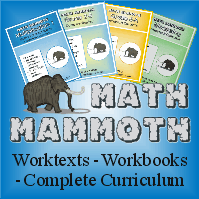I realize with straight SWR that more words per week is what is recommended. But sustainability is what is most important with any program a person uses. So if adding in the extra language components keeps the program alive for us while still laying the strong foundation that SWR provides, the goal has been accomplished
Day 1
WISE Guide Preliminaries: Rules / Phonograms
Rule Page (if applicable)
Dictate word list (If rule page, dictate on Day 2)
Day 2 - Word Work
Read list
One-syllable words - read/unglue sounds/read;
Multi-syllable - read / think to spell in syllables / read
Alphabetize
Vocabulary - What do the words mean
Synonyms
Antonyms
Person, place, thing, idea, action, being, descriptive (Part of speech)
Nouns: Common / Proper; Singular / Plural
Verbs: Tense (past, present, future); Singular / Plural
Day 3 - Sentence Work
Read list
One-syllable words - read/unglue sounds/read;
Multi-syllable - read / think to spell in syllables / read
Write sentences for all words
Pick a couple sentences for further analysis
Parse (Nouns, verbs, adjectives, adverbs)
Diagram (Subject / Verb for now)
Change sentence type (declarative, interrogative, exclamatory, imperative)
Change singular to plural and plural to singular
Change sentence tense
Replace nouns with pronouns
Expand - Add descriptive words
Condense - Take down to sentence shell
Replace as many words as possible with stronger words
Rearrange sentences
Day 4 - Test
-----------------------------------------------------------
Additional Information:
It has become obvious to me as I start to implement this plan that Day 2 is definitely going to take longer than a single day for my 8-year old. But that's okay. These are skills that she needs and I am excited that we have an easy way to reinforce them. So we will take each day as it comes and spend as many days as needed to keep the learning going.











2 comments:
Dear Hidden Jewel:
I am an Endorsed Spell to Write and Read Trainer in Bellevue, Washington. Your post is intriguing in that you came across exactly what the SWR program intends people to do but many do not: dig deeply into the language, using all the SWR tools (not all of which are obvious in the first few years of teaching it).
The longer you teach SWR as written, the more depth you will discover, as you already have. After 22 years of working with my own children and tutoring K-12 for the past 8, I have never had it fail as long as it is persistently taught.
And you're right: there is more than the dictation process to keep children engaged, and the enrichments are part of that. I think many folks never realize they have the authority as the teaching parent to "kick it up a notch" and challenge the student more as the need arises. How lovely that you persevered to help your daughter do exactly that!
However, you actually do not need to go back to WRR or other programs to get what you need. I taught my children SWR all the way from PK through high school by doing exactly what you have learned to do: incorporate all of the language arts skills by properly using the Enrichments (they really should be called "lessons" in my opinion) and expanding on them.
I'm delighted as a trainer that you are doing this; your children will reap great benefits from it. By junior high and high school you can keep doing this but with far more challenging materials, eventually rolling in high school level composition assignments, grammar, and literature...and real, complete literature at that, not just excerpts as many programs use.
Brava to you for building the foundation of full literacy in your homeschool. Your dedication will not go unrewarded, as much work as it sometimes feels it is!
I hope eventually to have a high school level SWR adjunct book written and published so it will be easier for people to continue this remarkable and effective program.
Blessings,
Sarah Moser
www.familyeducationservices.com
Thank you for your input, Sarah. A high school level SWR adjunct sounds very interesting!
I agree that the Enrichments can be expanded on. I just happened to have the information already compiled from the WRTR and Classical Writing, and it fell in line beautifully with what I was trying to accomplish.
While the plan of action for the words lists and rule pages is clearly laid out in the WISE Guide, sometimes it can be hard for users to know exactly how to incorporate on a daily or weekly basis some of the additional SWR steps like literature (14), vocabulary (24),comprehension (31), composition (33), and dictionary skills (36). The explanation in WRTR about The Spelling Lesson, The Writing Lesson, and The Reading Lesson really clarified how to include it all.
Post a Comment